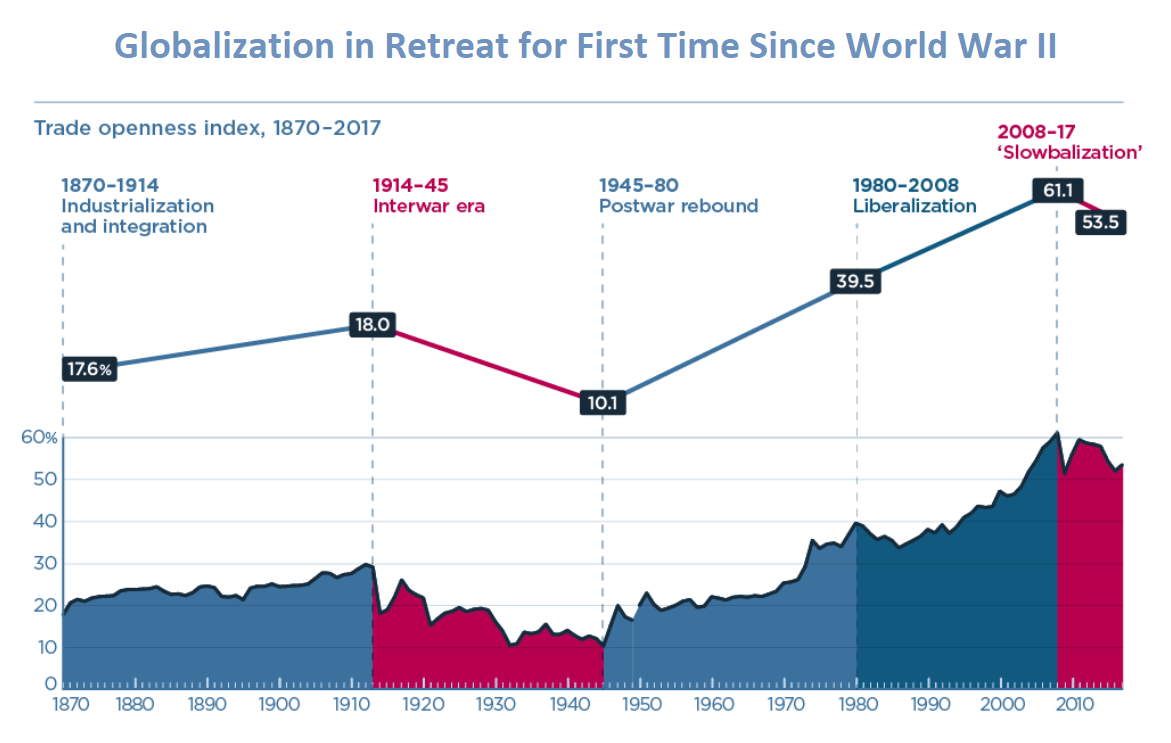Deglobalization Gains Momentum: PIIE
International trade was already in retreat before the Covid-19. The pandemic will test cross-border supply chains, alliances, investments, travel and other connections. Douglas Irwin, writing for the Peterson Institute for International Economics, warns that protectionist steps to limit trade will slow or even reverse economic growth. He identifies recent eras of globalization: 1870 to 1914, driven by advances in transportation; 1914 to 1945, conflict and economic disruptions reversed globalization; 1945 to 1980, the US led in creating institutions for global cooperation and contributed to a rebound; 1980 to 2008, technological advances and inclusion of emerging economies and developing nations contributed to a surge and eventually bubbles. In the current era since 2008, trade has slowed due to slowed growth in global value chains, a pause on reforms, and policies in China and the US that focus on domestic development and trade barriers. The pandemic adds to worries about supply chains lacking reliability, and he expects nations to copy and reinforce protectionist policies. “The risk of overreaction and a slide to protectionism is compounded by the failure of leadership in the United States, leaving a vacuum in the world trading system,” he concludes. “The absence of a coordinated and cooperative response could accelerate destructive beggar-thy-neighbor policies not seen since the 1930s.” – YaleGlobal
Deglobalization Gains Momentum: PIIE
Five periods of globalization in trade since the start of the 20th century demonstrate that trade and cooperative leadership enhance prosperity
Tuesday, April 28, 2020
Read the article about globalization reversing for the first time since the mid-20th century.
Douglas A. Irwin, nonresident senior fellow at the Peterson Institute for International Economics since February 2018, is the John French Professor of Economics at Dartmouth College. He is a research associate of the National Bureau of Economic Research. His areas of expertise include globalization, the World Trade Organization and trade policy.

Peterson Institute for International Economics
© 2020, Peterson Institute for International Economics